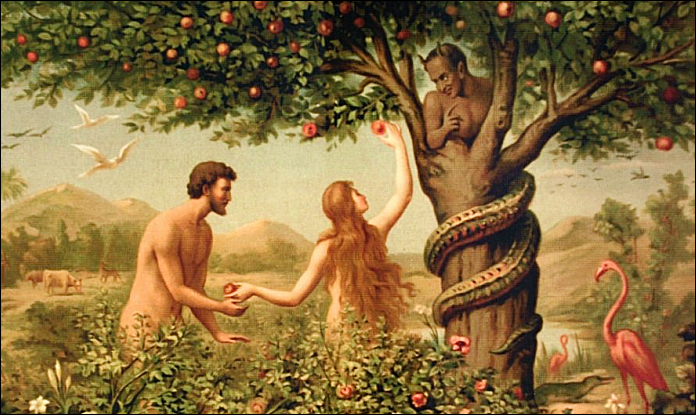The Defective Soul & The Garden of Eden
One key thing that unites Gnosticism and Orthodox Christianity, including other similar faiths, is the notion that human souls are defective in some way. That they are incomplete or lacking in their essential nature. What could put them in extreme jeopardy respecting their continued existence beyond the mundane world. In other words, if one has not corrected the defect of their soul prior to earthly death, then at the point of death when the soul is released from its material body, it may find itself in a very unpleasant realm.

Now for Christians, all of this is bound up in the Biblical story of Adam and Eve in the book of Genesis. The story of their ‘Fall,’ when they ate of the forbidden fruit and corrupted their bodies, resulting in their expulsion from the Garden of Eden. Much later on, in line with Christian dogma, Jesus is then presented as the ‘ultimate solution’ for overcoming the defect, thus leading to the salvation of all souls following death. The deficiency of Adam and Eve having been passed on to all future generations.
The Gnostics for their part viewed things very differently, due to a fundamentally different interpretation of the Genesis story.
Now absent their own body of sacred literature, as noted above, in order to actually communicate their own interpretation of the story, the Gnostics compiled their own extra-biblical texts, many of which are known as Gnostic Gospels. At least those of a Christian persuasion, for as already alluded to, Gnosticism drew upon many traditions, with many esoteric Gnostic works being explicitly non-Christian.
Be that as it may, in addressing the matter of a defective soul at least from a Christian-Gnostic perspective, it is well to know that most Gnostic groups held that the God of the Garden of Eden, who specifically told Adam and Eve not to eat the ‘forbidden fruit,’ was in fact a false God. A ‘lesser being,’ compared to a more ultimate transcendent God, truly responsible for all of creation. The act of eating the fruit was thus considered a ‘good thing’ so to speak, for it gave both Adam and Eve the knowledge that they had been kept in a state of ignorance by this lesser God. Who indeed, subsequently expelled them from the Garden of Eden in anger at their revelation of his true status.
This then was the first act towards correcting the defect in Adam and Eve, including all those to follow. Now going further still, according to the Gnostics, the false god is the ruler of the material world only, above which exists a higher ‘light realm’ of exacting purity, directly associated with the transcendent God. Moreover, Jesus himself, rather than being ‘God incarnate’ in accordance with mainstream Christianity, is more akin to a Divine emissary sent from this higher light realm. A messenger of the true hidden God, acting as a spiritual teacher and revealer of hidden knowledge i.e. gnosis – that special type of knowledge that the Gnostics sought.